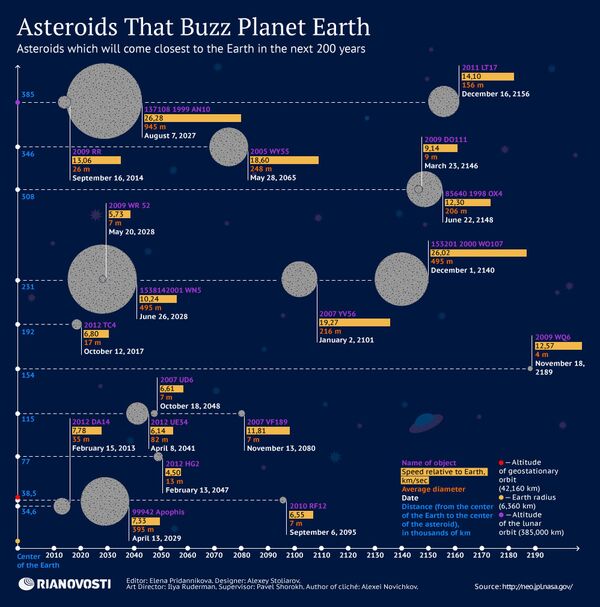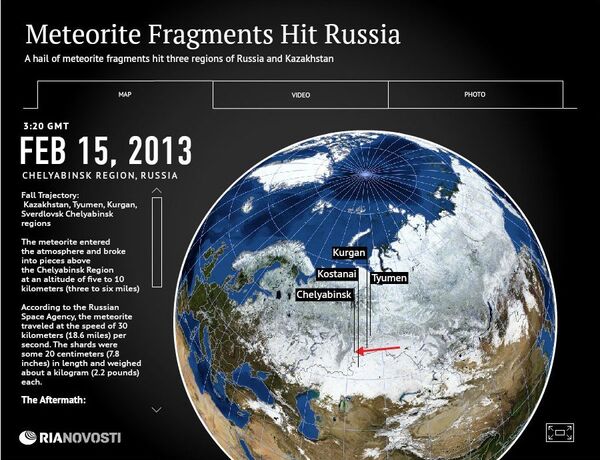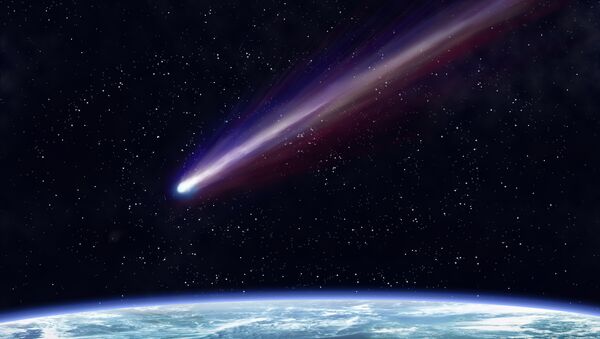
“We have decided that the US Federal Emergency Management Agency (FEMA) and Russia's Emergencies Ministry will work together to develop systems to protect people and territory from cosmic impacts,” Russia’s Emergencies Minister Vladimir Puchkov told journalists.
The meeting also covered other kinds of natural emergencies, such as recent years' extreme weather in Russia and United States, but it was cooperation to counter space threats that stole the limelight at the news conference.
“I believe we can make a technological breakthrough in this area if the Emergencies Ministry and FEMA supervise this project, attracting the finest minds and research groups including in Canada, Europe, China, and Southeast Asia,” Puchkov added.
On February 15, a meteor entered the Earth’s atmosphere over Russia’s Chelyabinsk region and broke into pieces at an altitude of about 5-10 kilometers. The blast-wave shattered class and damaged buildings in the region, and over 1,500 people sought medical assistance.
Members of the scientific community in Russia and America have suggested a variety of approaches to counter this threat, from launching ballistic missiles to using unmanned rockets and asteroids in a kind of “space billiards.”
On June 22, a huge chunk of the meteorite that hit Russia earlier this year was found at the bottom of Lake Chebarkul.




